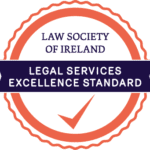Q: What are the main property taxes in Ireland?
A: In Ireland, property owners need to be aware of two primary taxes: Stamp Duty and Local Property Tax (LPT). Stamp Duty is a one-time tax paid by the buyer when purchasing property. In contrast, Local Property Tax is an annual charge calculated based on the market value of residential properties.
Q: How is Stamp Duty determined, and who pays it?
A: Stamp Duty is calculated as a percentage of the property’s purchase price. The rate varies depending on the property’s value and other factors such as the buyer’s status (e.g., first-time buyer). Typically, the buyer is responsible for paying this duty.
Q: Are there any Stamp Duty exemptions or reductions?
A: Yes, there are certain exemptions and reductions available, particularly for first-time homebuyers. These can range from reduced rates to full exemptions. However, regulations change, so it is essential to stay updated and consult with a legal expert to understand what you might qualify for.
Q: What about Local Property Tax? How is it calculated, and who needs to pay it?
A: Local Property Tax is an annual tax on residential properties, calculated based on the market value of the property. Property owners are responsible for paying this tax, which is self-assessed but guided by government rates.
Q: Can one challenge their LPT assessment?
A:Yes, if you believe your LPT assessment does not accurately reflect your property’s market value, you can appeal. You will need to provide evidence to support your claim, and any adjustments will affect your future tax payments.
Q: What if LPT is not paid?
A: Failing to pay Local Property Tax can lead to significant consequences, including penalties, interest, and legal actions. It is vital to meet these obligations to avoid such repercussions.
Q: Can property tax expenses be managed more effectively?
A: Effective management of property taxes involves strategic planning. This may include taking advantage of exemptions for Stamp Duty or ensuring proper budgeting for annual LPT costs. Staying informed about changes in property value is also crucial.
Q: How can a solicitor help with property tax issues?
A: A solicitor can be invaluable when navigating property tax matters. They provide up-to-date information on tax rates and exemptions and ensure compliance with all legal requirements. Their guidance is particularly beneficial during property transactions, helping to manage financial and regulatory aspects smoothly.
In summary: Navigating property taxes in Ireland, whether Stamp Duty or LPT, requires an informed approach. Consulting a solicitor can offer essential guidance, ensuring compliance and effective management of your financial responsibilities in property dealings.


